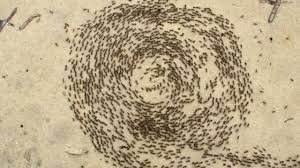How to Promote Human Creativity?
The Hidden Miracle of Human Creativity!
Every one of us is inherently creative.
Sadly though, most of us have been treated as though we are not creative, as though creativity is rare and only for "special people." Therefore, being told you are creative can bring up lots of "but...." thoughts—and even "No, I'm not" thoughts.
In fact, we live in a culture where creativity is too often treated as special, unusual, and maybe even unsettling. (Think of negative stereotypes about "creative types"!) As a result, most of us feel "not creative."
Ants are Smart—But Are They Creative?
Creativity is simply the universal human ability to create unique responses to the many (often unique) situations we face in our lives.
Although essentially universal among humans, this raw ability is not common among species like ants, which have a great number of pre-programmed responses. Those responses are useful and powerful but are also applied rigidly.
A famous example among army ants is the "circle of death" or "ant mill." Army ants have an instinct to follow the ant ahead of them. That's an incredibly useful way to keep a community of army ants together while thousands of them prowl the ground in search of food.
But that instinct, like instincts in general, is rigid. If, as sometimes happens, the lead army ant in a large migration happens to come around behind the group it is leading, it just follows the last ant in the group, who is now ahead of it—and who, in turn, is following a long series of ants who, in this case, are following it.
An “ant mill” created when the lead ant begins to follow its followers
This creates an endless circle. It's not uncommon for these "ant circles" to die of exhaustion!
Ants, in other words, are smart, but not creative.
How to Discourage Human Creativity—And HOw Not To
The good news is that we are all born with inherent creativity.
But the bad news is that many of us are led to believe that we lack creativity—which is a tragedy, both for the discouraged individuals and for the society deprived of their potential contributions.
Merely believing (however falsely) that we are not creative can inhibit our creativity, thus creating a self-fulfilling prophecy.
How can we circumvent this harmful misconception?
First, we can remind ourselves of the truth: we humans are, by nature, creative.
Second, we can treat each other as the creative creatures we are.
Third, we can take advantage of the "fun loophole": it's usually okay to be creative as long as our purpose is to have fun!
Will You Give the Gift?
So, what about you? How can you insert opportunities to spark the creativity of others? (Not to argue with them about whether they are creative, but to give them an undeniable, playful experience of their own creativity?)
That would be an invaluable blessing: to help them notice their inherent creative gifts!


